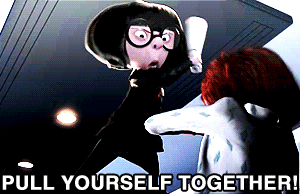This past week, I found out that I was offered a spot in an internship program that I applied for a few months ago. I am incredibly excited, but most of all I am so relieved that it worked out, and that I have one less thing to worry about.
This internship acceptance came at a good time, especially because these past few months have been filled with constant talk of internships, jobs, majors, study-abroad, housing, and all of the other long-term stuff that sends my mind into an anxious whirlwind. I have had many moments where I have felt like a “failure” for not securing an internship, and for not majoring in something “useful” or “lucrative.”

I recently declared a major in “Humanities: Interdisciplinary Studies in Culture,” and while I think it is a good fit for me, I often find myself wishing that I could have majored in something more “impressive,” like biochemistry or neuroscience. Nothing is stopping me from pursuing those majors, but they just don’t feel like majors that are right for me. In addition, for most of my life I have convinced myself that I am horrible at math and science, which rules out a lot of majors and minors. In hindsight, I think a lot of my hatred for these subjects stems (no pun intended) from some negative experiences I had with these subjects in elementary and middle school. I have told myself that I was bad at certain subjects for so long, that I eventually internalized it and began to hate them as well.
It also doesn’t help that I have a twin brother who is much more mathematically inclined. He is majoring in computer science, and I often find myself jealous of the fact that he is, in my opinion, pursuing such an impressive major.
I have done a lot of reflecting on my strengths and weaknesses this past semester, and I think I have become much more at-peace with the fact that I enjoy social sciences and humanities much more than I enjoy math or most forms of science. The thing is, we need all sorts of people in the world, and the fact that I am not going down a pre-med track does not make me any less valuable as a human, it just means I have different interests, strengths, and goals than some other people. Does the fact that I’m not majoring in a STEM field make me ‘less smart’ or ‘less hard-working?” Not really. Will people judge me for majoring in a kind of vague and potentially ‘less rigorous’ major? Probably. Does that matter? Not really.
And while I am still pretty convinced that I don’t have a mind that naturally “gets” math, I had a really positive experience with a science class last semester that pushed me outside of my academic comfort zone, and really caused me to rethink some of the lies and half-truths that I tell myself. I took a chemistry class called Land Air and Ocean Science to fulfill my natural science GE, and even though I was filled with trepidation (it had been quite a few years since I had taken a chemistry course,) I ended up LOVING the class. A large part of this was due to the fact that the professor understood that everyone in the class was taking it for their GE, and that many of us did not consider ourselves to be “sciency.” Thus, she tried really hard to make the material clear, engaging, and straightforward. Like I said, I have had some really negative experiences with math and science classes that left me feeling stupid and incompetent, so this class was such a breath of fresh air.
Overall, this class also helped me realize that it is not always helpful to narrowly categorize ourselves. As mentioned, my twin brother and I kind of grew up knowing that he was the “math-and-science-one,” and I was the “reading-writing-social-science-one.” We both placed ourselves in narrow categories that probably did us both a disservice through making us believe that we weren’t really capable of doing the things we were less talented at.

Me, when it comes to math.
There have probably been a lot of things I have missed out on in life because I have convinced myself that I’m bad at it. I am now determined to stop categorizing myself in unhelpful ways, so that I will be more willing to go out of my comfort zone and try new things—even if I fail at first. Honestly, if I ended up loving a chemistry class—something I never thought was possible—then I can imagine there are so many other “lies” I tell myself that are probably not entirely valid. In the end, I have mostly come to terms with the fact that it’s okay for me not to love certain subjects, but I am also determined to challenge some of my internalized notions about what I “like” and “don’t” like, and I suggest that we all try this exercise out more often.


